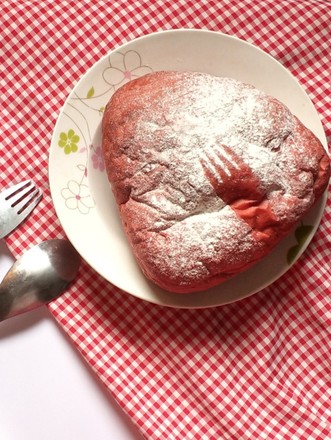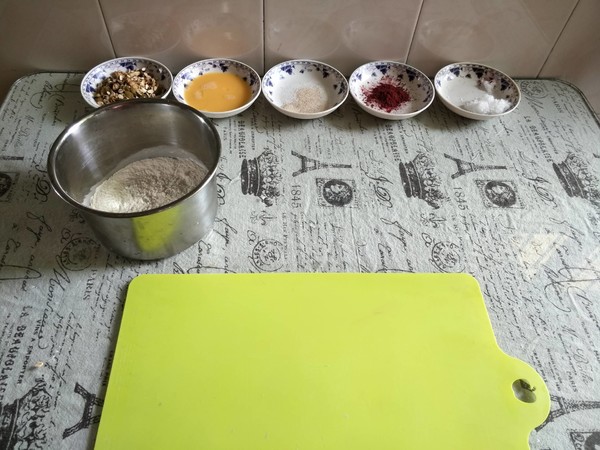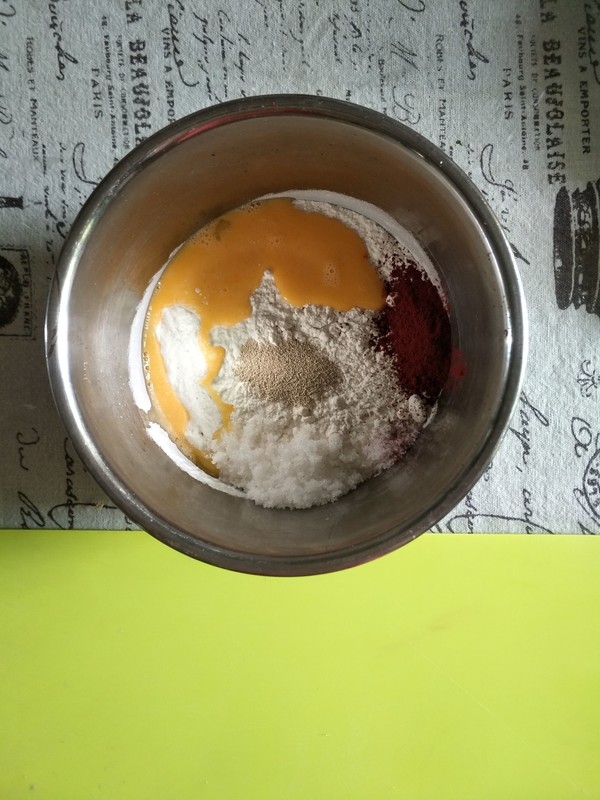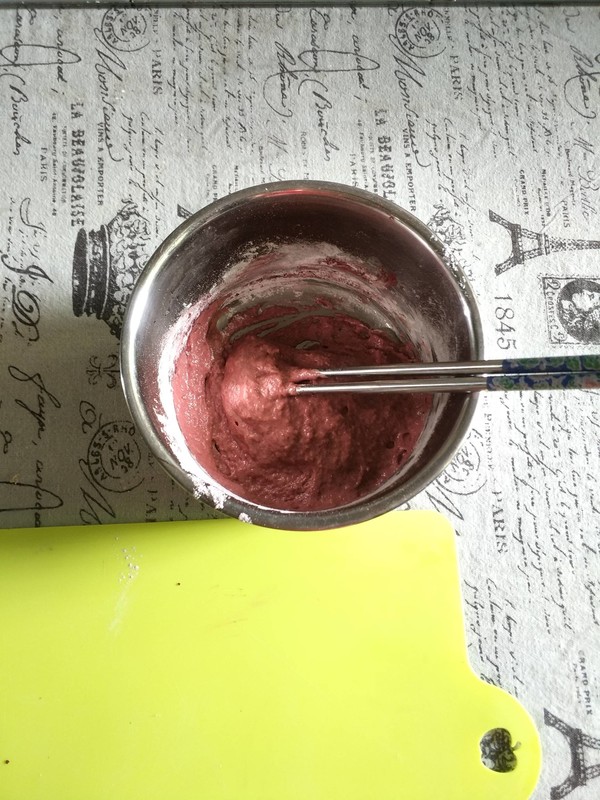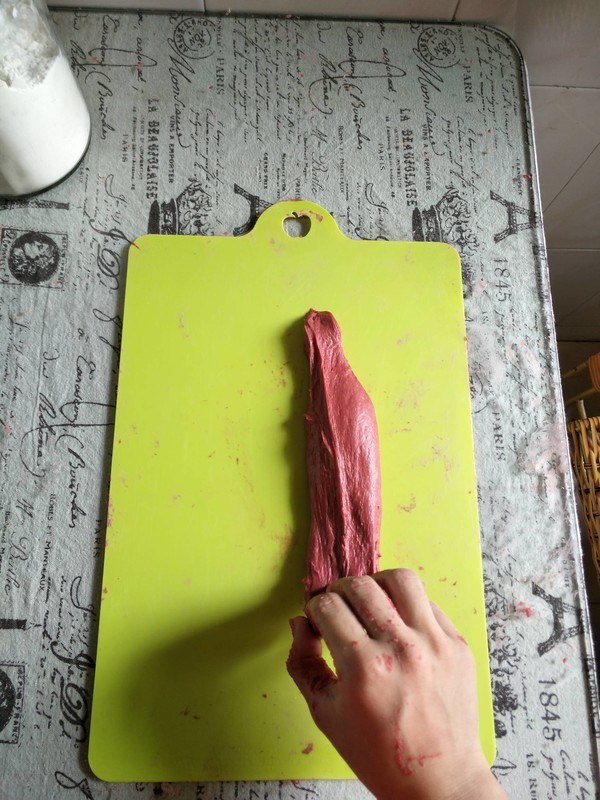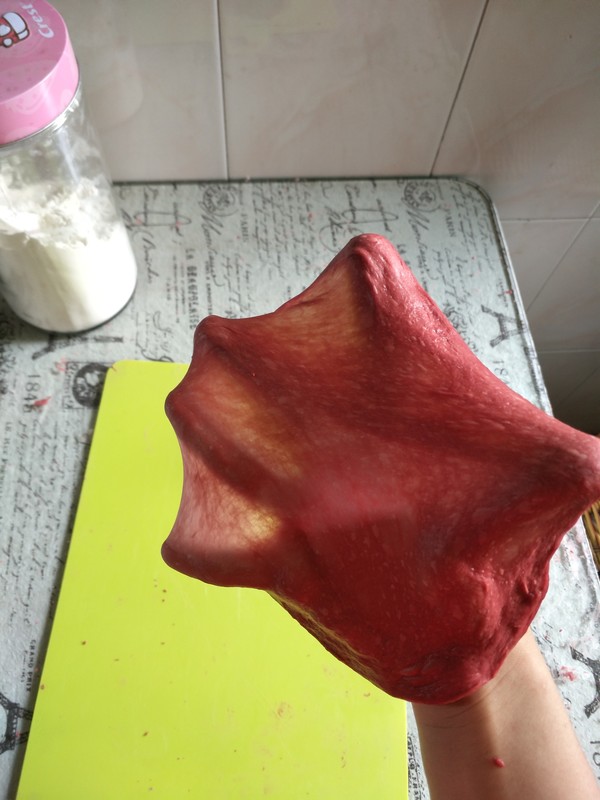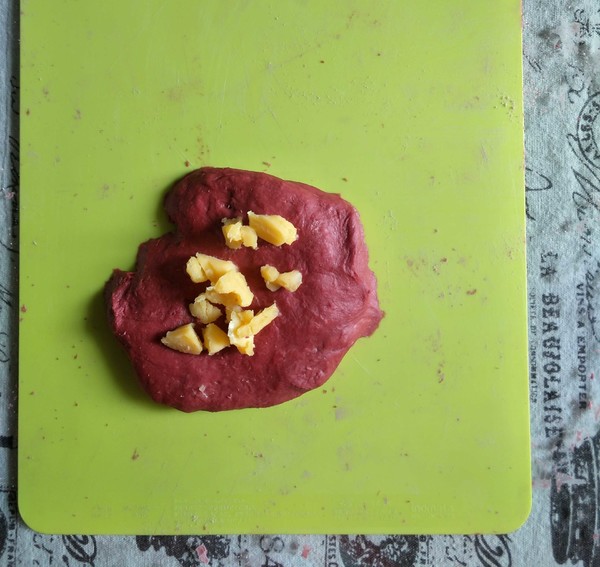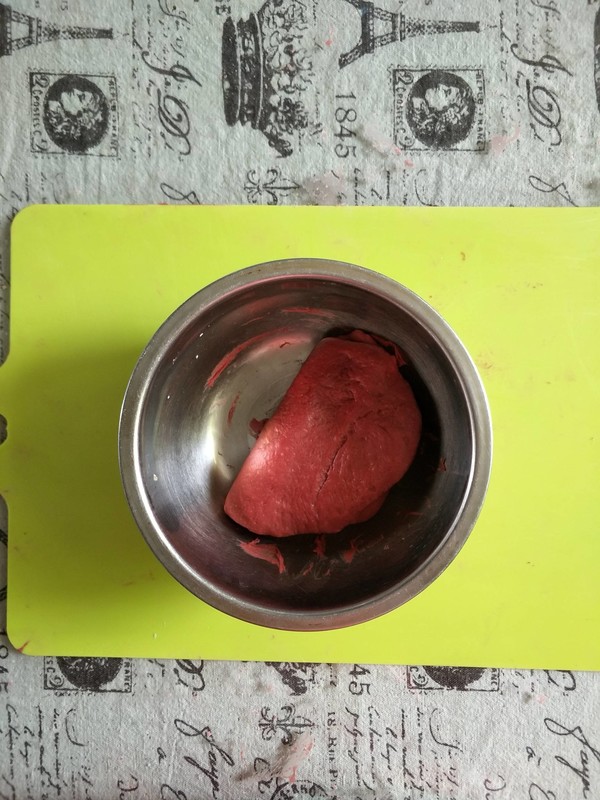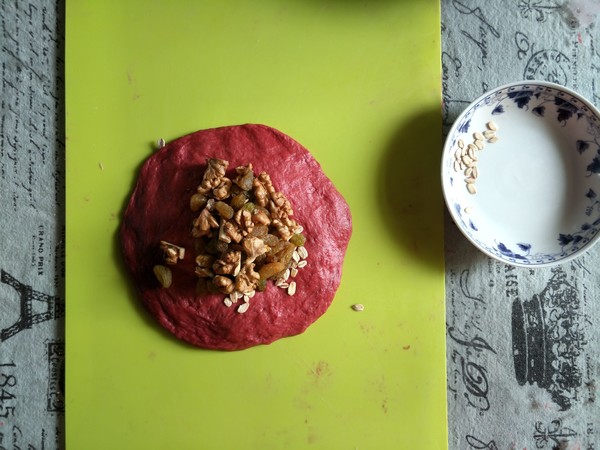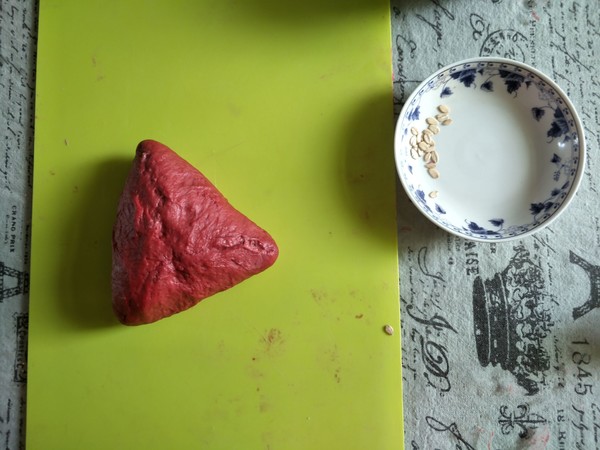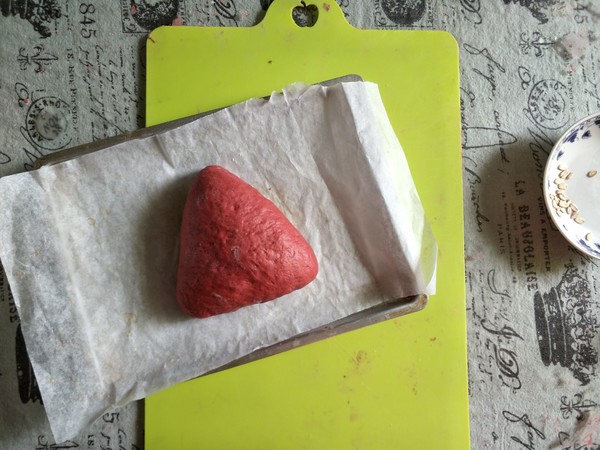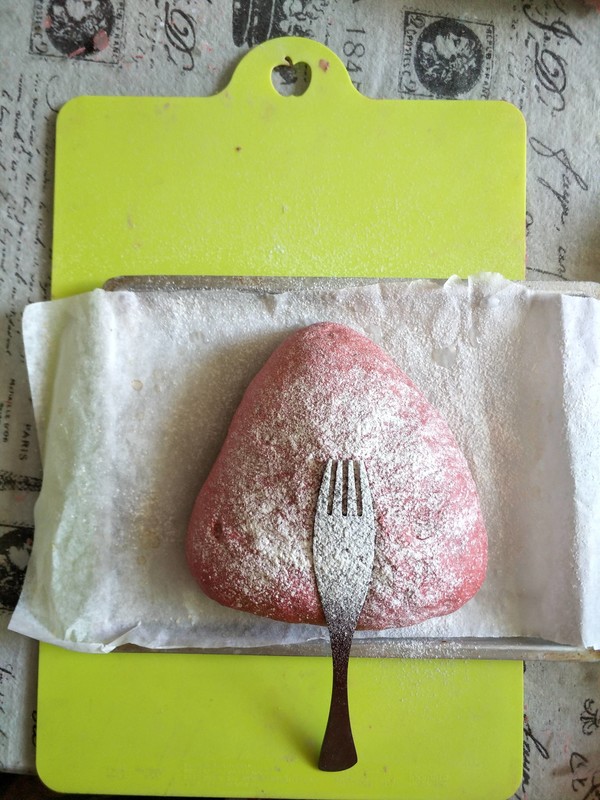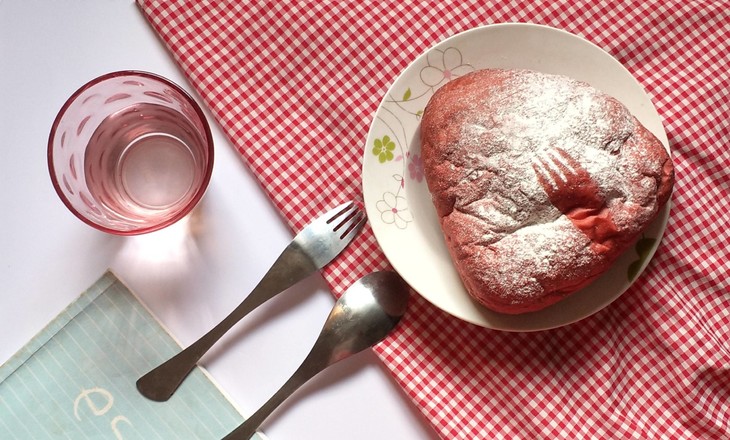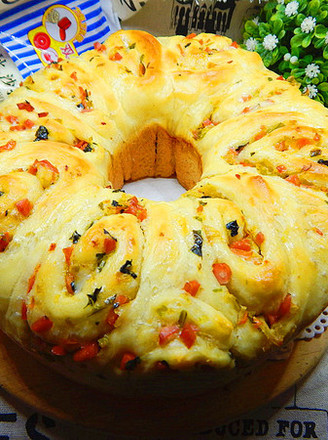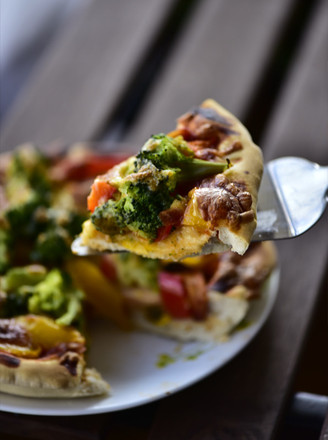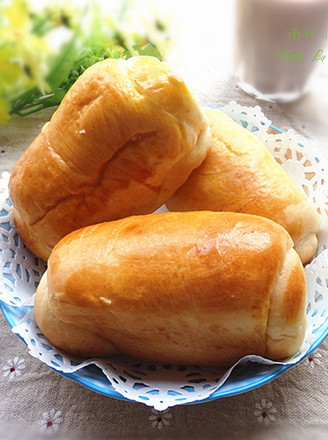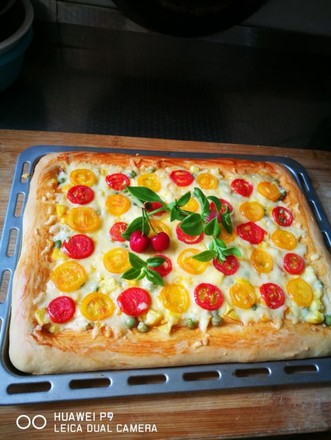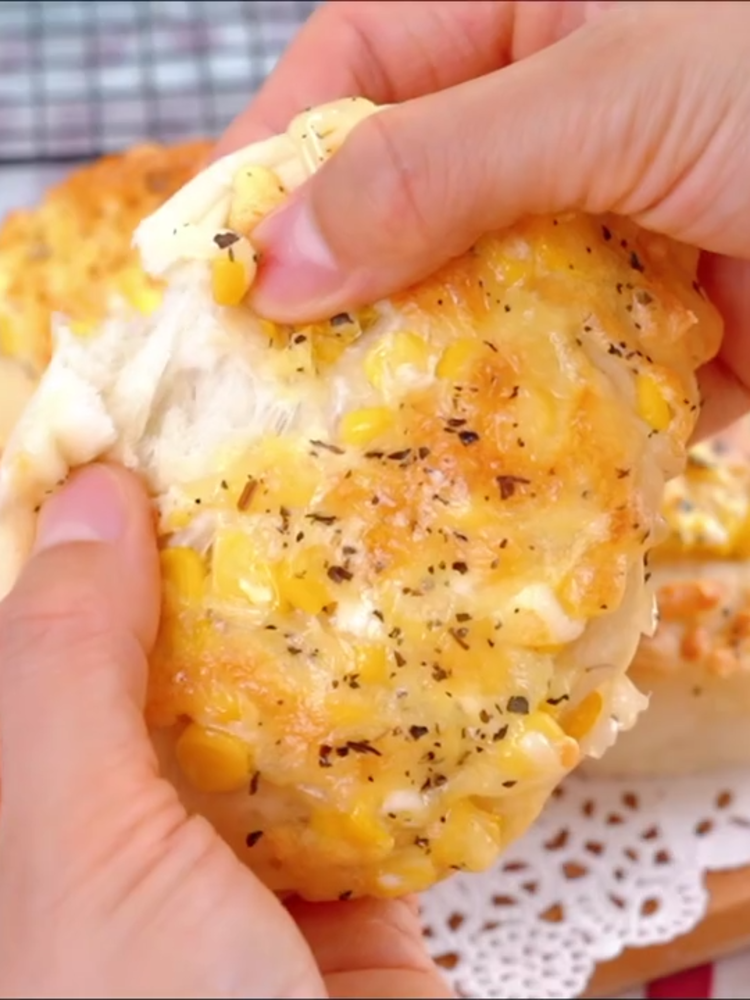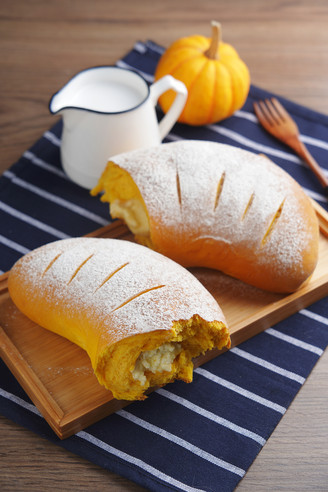Red Velvet Soft Europe-full of Girls' Hearts
1.
Prepare materials.
2.
Pour all the ingredients except butter and water into the flour. It is best to use one material to occupy a corner instead of mixing them all together.
3.
After stirring slightly, stir the material with chopsticks and slowly add water to form a flocculent.
4.
Stir the material again, and pour it on the control panel after there is no dry powder. It will be very sticky at first, it is the kind that sticks to the level that you think it is impossible to form a dough. It does not matter. The flour will slowly absorb water during the beating process. If the hand is too sticky, you can let it stand for 10 minutes before beating it. The style of the beating is approximately as shown in the figure, and the group is retracted, and then thrown out. The picture is that I have been beating for a while, so the dough will have less moisture and be able to shape.
5.
After repeated beating for more than half an hour, it can basically become a film, as shown in the figure.
6.
Slightly soften the butter, dice it, and wrap it in the dough. At this time, don't handle the dough by beating it, but use a method similar to scrubbing clothes, and the glove mask will soon be out. If it is not for the pursuit of a very soft taste, the dough of ordinary bread is basically enough to be able to pull out the film. Only when making toast will there be strict requirements on the glove film that cannot be pulled out.
7.
After kneading the dough, put it in a container, cover with a layer of plastic wrap and add a cover. Any flat plate can be covered with a layer to prevent moisture loss. Put it into the oven and ferment at 35 degrees for 30-50 minutes. Hot water fermentation, room temperature fermentation, oven fermentation can maintain a constant temperature, even in winter can also be perfect fermentation. Fermentation time depends on the temper of each oven, my oven is generally about 40 minutes.
8.
When the dough is twice as large, the fermentation is complete. After one fermentation, take out the exhaust gas, roll it flat with a rolling pin, and then fold it up like a quilt, repeat three or four times. After the final fold, let it stand in the container and cover with plastic wrap to prevent moisture loss. The purpose of standing is to prevent the dough from being too elastic and retracting during the shaping process.
9.
Let it rest, knead the dough a little bit, press the smooth side against the backing plate, roll the dough into a thick and thin shape in the middle, and add nut fillings.
10.
After adding the fillings, lift the dough from three directions to gather it in the middle to form a triangle shape and pinch the seams tightly. If the dough is too dry before, you can add a little water and carefully pinch the cracks tightly.
11.
Turn the dough over, put it on the tray and put it in the oven for second fermentation. Keep it at a constant temperature of 35 degrees for 30-50 minutes. Before fermentation, it is best to spray a little water on the surface of the dough, add a layer of lid arched with tin foil, and brush water inside the tin foil. Note that the tin foil should not touch the dough and leave aside The space where the dough expands and becomes larger. After the dough becomes twice as large, the second fermentation is basically completed.
12.
Take out the dough, put a fork on it, and sprinkle with flour. Preheat the oven for 10 minutes at 180°C. After preheating, feed the dough into the oven. 180°C for 20 minutes. Bake for about 10 minutes, add a layer of tin foil on the dough to prevent it from scorching and discoloration.
13.
The finished product is hot.
Tips:
In addition to the same water, eggs, butter, flour, salt, sugar, and yeast, the red yeast rice powder can be changed to cocoa powder or matcha powder or even instant coffee. The sugar can also be changed to brown sugar, and the filling is more. , Coconut, red beans, etc. can be changed according to your own preferences. We look forward to making more types of European package combinations.

